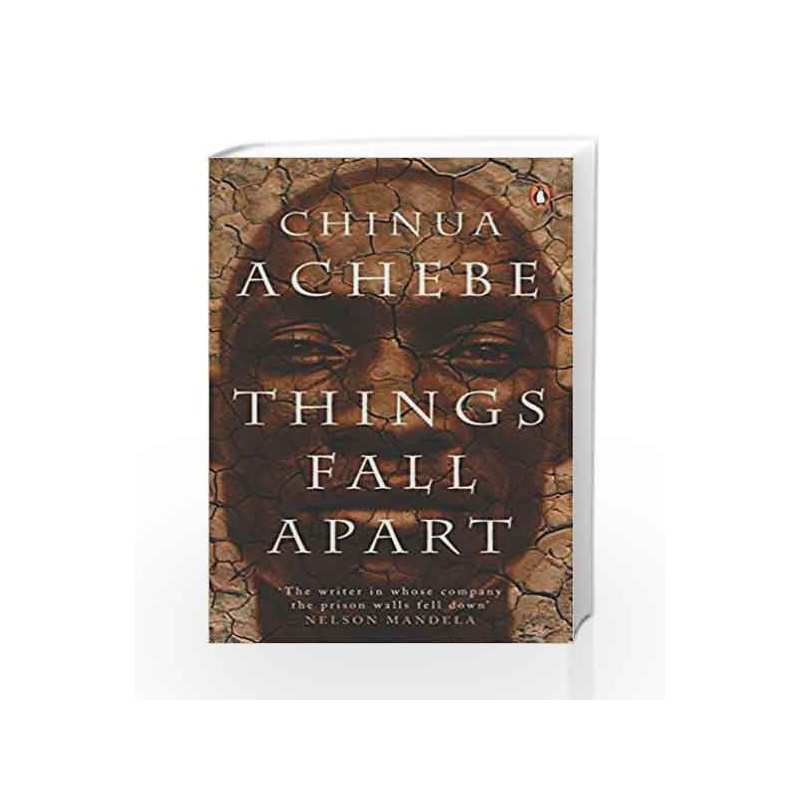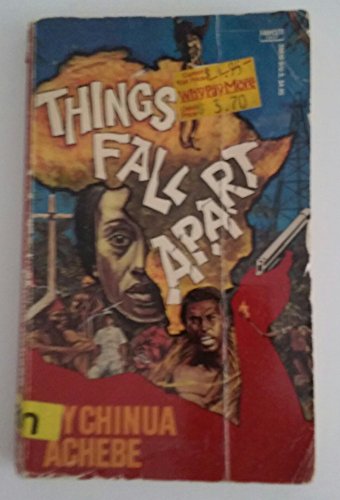

But his whole life was dominated by fear, the fear of failure and of weakness. Perhaps down in his heart Okonkwo was not a cruel man. His wives, especially the youngest, lived in perpetual fear of his fiery temper, and so did his little children. He is also a man who exhibits flaws well-known in Greek tragedy: Okonkwo ruled his household with a heavy hand. Okonkwo is a champion wrestler, a prosperous farmer, husband to three wives and father to several children. The son of a charming ne'er-do-well, he has worked all his life to overcome his father's weakness and has arrived, finally, at great prosperity and even greater reputation among his fellows in the village of Umuofia. His Ibo protagonist, Okonkwo, is a self-made man. Instead, Achebe sketches a world in which violence, war, and suffering exist, but are balanced by a strong sense of tradition, ritual, and social coherence. First published in 1958, just two years before Nigeria declared independence from Great Britain, the book eschews the obvious temptation of depicting pre-colonial life as a kind of Eden. One of Chinua Achebe's many achievements in his acclaimed first novel, Things Fall Apart, is his relentlessly unsentimental rendering of Nigerian tribal life before and after the coming of colonialism. Achebe does not only capture life in a pre-colonial African village, he conveys the tragedy of the loss of that world while broadening our understanding of our contemporary realities. With more than 20 million copies sold and translated into fifty-seven languages, Things Fall Apart provides one of the most illuminating and permanent monuments to African experience. Told through the fictional experiences of Okonkwo, a wealthy and fearless Igbo warrior of Umuofia in the late 1800s, Things Fall Apart explores one man's futile resistance to the devaluing of his Igbo traditions by British political andreligious forces and his despair as his community capitulates to the powerful new order. It is a classic narrative about Africa's cataclysmic encounter with Europe as it establishes a colonial presence on the continent. A masterpiece that has inspired generations of writers in Nigeria, across Africa, and around the world.” - Barack Obama “African literature is incomplete and unthinkable without the works of Chinua Achebe.” -Toni Morrison Nominated as one of America’s best-loved novels by PBS’s The Great American Read Things Fall Apart is the first of three novels in Chinua Achebe's critically acclaimed African Trilogy. London: Penguin books, 2010.įind citation guides for additional books linked here.“A true classic of world literature. Chinua Achebe, Things Fall Apart (London: Penguin, 2010).Īchebe C. Achebe, C., Things Fall Apart Penguin books: London, 2010.ġ. London: Penguin books.ġ Achebe, Chinua, Things Fall Apart (2010) London: Penguin books 2010.Īchebe, Chinua. Things Fall Apart Penguin books: London, 2010.ġ.

Here are Things Fall Apart citations for 14 popular citation styles including Turabian style, the American Medical Association (AMA) style, the Council of Science Editors (CSE) style, IEEE, and more. Things fall apart, London: Penguin books. London: Penguin Classics.Īchebe, C., 2010. London: Penguin Classics, 2006.Īchebe, Chinua. Chinua Achebe, Things Fall Apart (London: Penguin Classics, 2006).Īchebe, Chinua. Here are Things Fall Apart citations for five popular citation styles: MLA, APA, Chicago (notes-bibliography), Chicago (author-date), and Harvard style. If you are looking for additional help, try the EasyBib citation generator. Things Fall Apart is cited in 14 different citation styles, including MLA, APA, Chicago, Harvard, APA, ACS, and many others.
Achebe things fall apart how to#
Learn how to create in-text citations and a full citation/reference/note for Things Fall Apart by Chinua Achebe using the examples below.


 0 kommentar(er)
0 kommentar(er)
